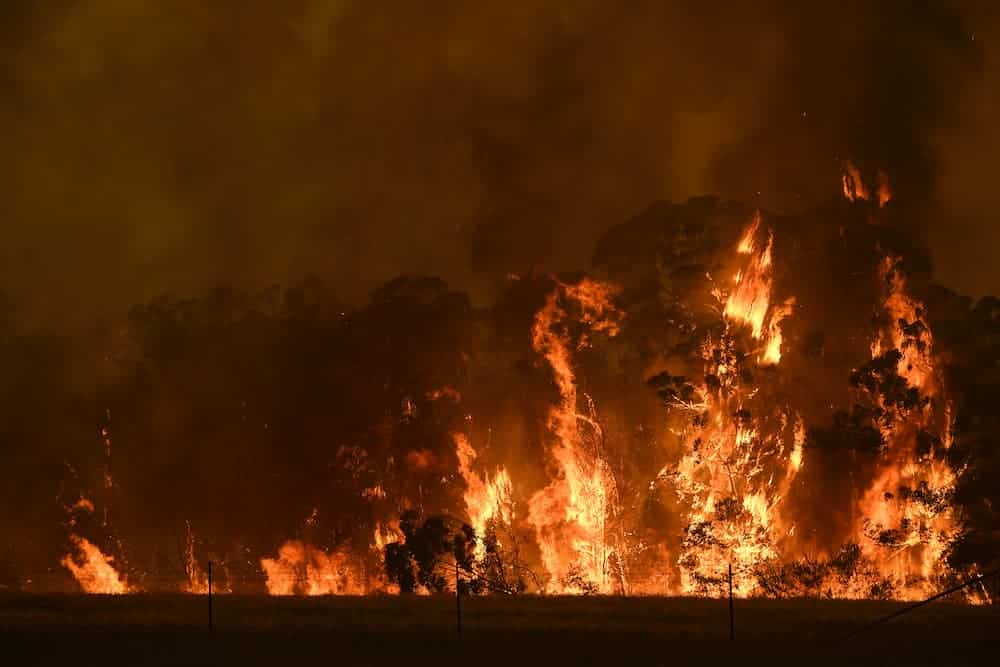Australia’s Black Summer bushfires raised the temperature of the planet’s atmosphere to its highest level in 29 years, according to a new study.
The catastrophic fires in 2019/20 burned more than 46 million acres and directly killed 34 people, as well as millions of animals.
Scientists from Britain’s University of Exeter say the blazes raised the lower stratosphere temperature to its highest level since the 1991 eruption of Mount Pinatubo in the Philippines.
The researchers say plumes of biomass burning aerosols (BBAs) from the fires reached 16km into the sky, and they were eventually detected up to 36km high two months later.
The aerosols from the Black Summer Bushfires were “on par with the strongest volcanic eruptions in the last 25 years, exceeding the stratospheric aerosol intrusion produced by the previously record-breaking 2017 North American wildfires”.
The rise in stratospheric temperatures was caused by those sulfate aerosols absorbing sunlight at infrared wavelengths, climate modelling and satellite imagery showed.
“The similarity between the observed warm LST (lower stratospheric temperature) perturbations and our physical modelling combining satellite retrievals and a state-of-the-art climate model leads us to conclude that the highly absorbing biomass burning aerosols from the 2019–20 South East Australian wildfires caused the highest global mean LST anomaly since that caused by the 1991 eruption of Pinatubo,” they wrote in their study published in the journal Nature.
The researchers also found that smoke aerosols from the Black Summer fires caused the hole in the ozone layer over Antarctica to expand to a record size in 2020.
The study noted that climate change will likely increase the frequency and intensity of wildfires, which will in turn increase the probability of similar stratospheric events.



